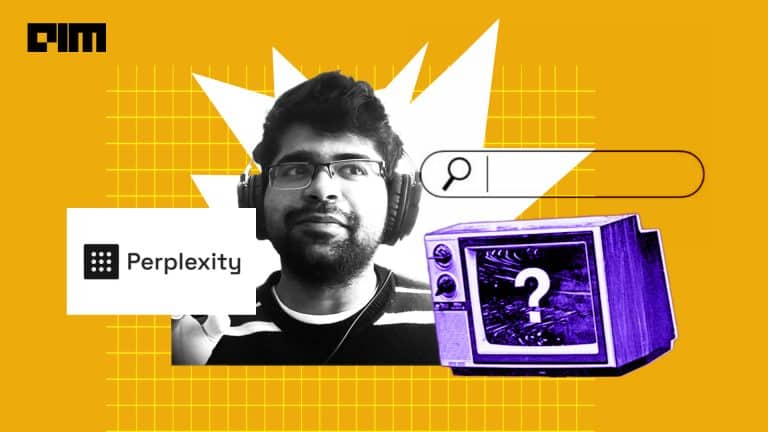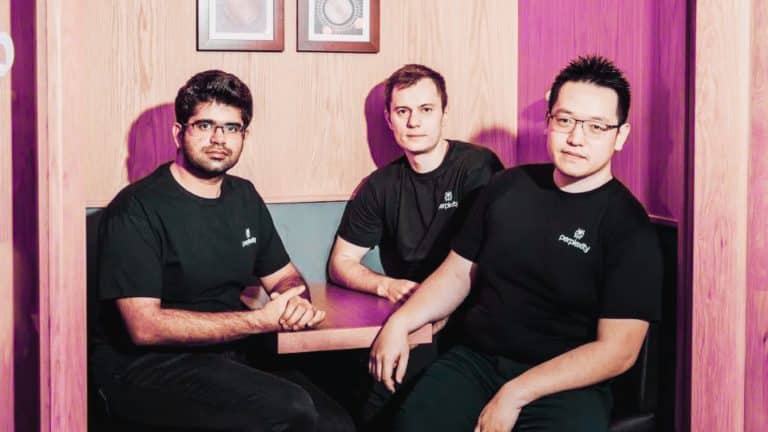When AIM asked why Perplexity AI couldn’t be built in India, little did we know that it was actually possible. The best part is that a guy did it over the weekend, and made it open source.
Bishal Saha, a dropout from Lovely Professional University, created Omniplex. Speaking to AIM, Saha said that despite initial job rejections from Perplexity AI, it’s his tenacity that led him to creating an open-source alternative that is slowly gaining traction.
“I saw Perplexity AI gaining huge traction and thought I could contribute, but they rejected me twice,” Saha recalled, that he had applied for a job at Perplexity, but they were only hiring people from Google.
Undeterred, he decided to build his own version. “I built the Omniplex prototype in one weekend. It was just a single-page app, but it started gaining interest after I shared on Reddit,” he explained.
Saha has made Omniplex open-source, sharing his code with the world. “I’m not asking for any money. The source code is openly available,” he stated. His commitment to open-source reflects a broader vision of democratising AI.
For Saha, the cost per search query is minimal, but scaling remains an issue. Saha leverages credits from OpenAI and Bing APIs, managing costs effectively. “Per search query, it costs me about $0.007, and I’ve got $2,500 in credits from OpenAI. I haven’t spent half of it yet,” he adds.
Omniplex is built using the Vercel AI SDK, Firebase, NextJs, and Bing, and currently runs on OpenAI’s GPT model. Saha states that his goal is to eventually support all LLMs such as Claude, Mistral, and Gemma.
Perplexity is Nothing But a Hype
Saha said that it is actually quite easy to build something like Perplexity. But most alternatives to Perplexity are not gaining much traction. “Even in our discussions, people are not excited about it. But I believe in the power of open-source,” he emphasised.
Saha’s insights into the AI industry are sharp and critical. He described Perplexity AI as a “hype to the extent that it cannot be a billion-dollar business”.
According to Saha, Perplexity’s user numbers and revenue figures often don’t add up. “I’ve done much more research, and you can also find that they use Bing for their searches and then scrape the top results. It’s not as revolutionary as it’s made out to be,” he asserted.
“It’s not a big business; they’re paying a lot to acquire traffic.” In his own words, “They underestimated the power and potential of dedicated developers. I’m proving them wrong, one line of code at a time.”
The Indian startup ecosystem is too focused on Indic LLMs
Saha said that since he is not from an IIT or NIIT, the bias is evident in his own experiences and those of his peers. “YC looks for the tech pedigree. If you’re not from an IIT, you’re not worth an interview,” he shared, pointing to the broader issues of meritocracy and elitism in the startup world in India, and globally.
“Most Indian investors are not into AI; they don’t understand it. They prefer startups from IITs or Ivy League colleges,” he said, while sharing that investors are often reluctant to speak to founders from other universities.
Despite this, Saha’s journey is a testament to resilience and innovation. “I’ve worked for two YC-backed companies and did a lot of startups, but being a dropout from LPU, investors don’t like me much,” Saha shares candidly. He initially ventured into fintech, building account aggregators and financial advice apps such as Gullak Money and Pocket Money.
However, due to stringent regulations and lack of investment, he pivoted towards AI.
Now, Saha is shifting his focus again. “I’m moving out of the AI race. It’s absurd how many startups are entering YC without a clear plan for the next three years,” he said.
Instead, he’s exploring augmented reality with a former Google employee in his stealth startup. “When AR goes mainstream, there will be a gap. Web and app developers lack 3D design experience. I want to build a platform like Figma for augmented reality,” he revealed.






























